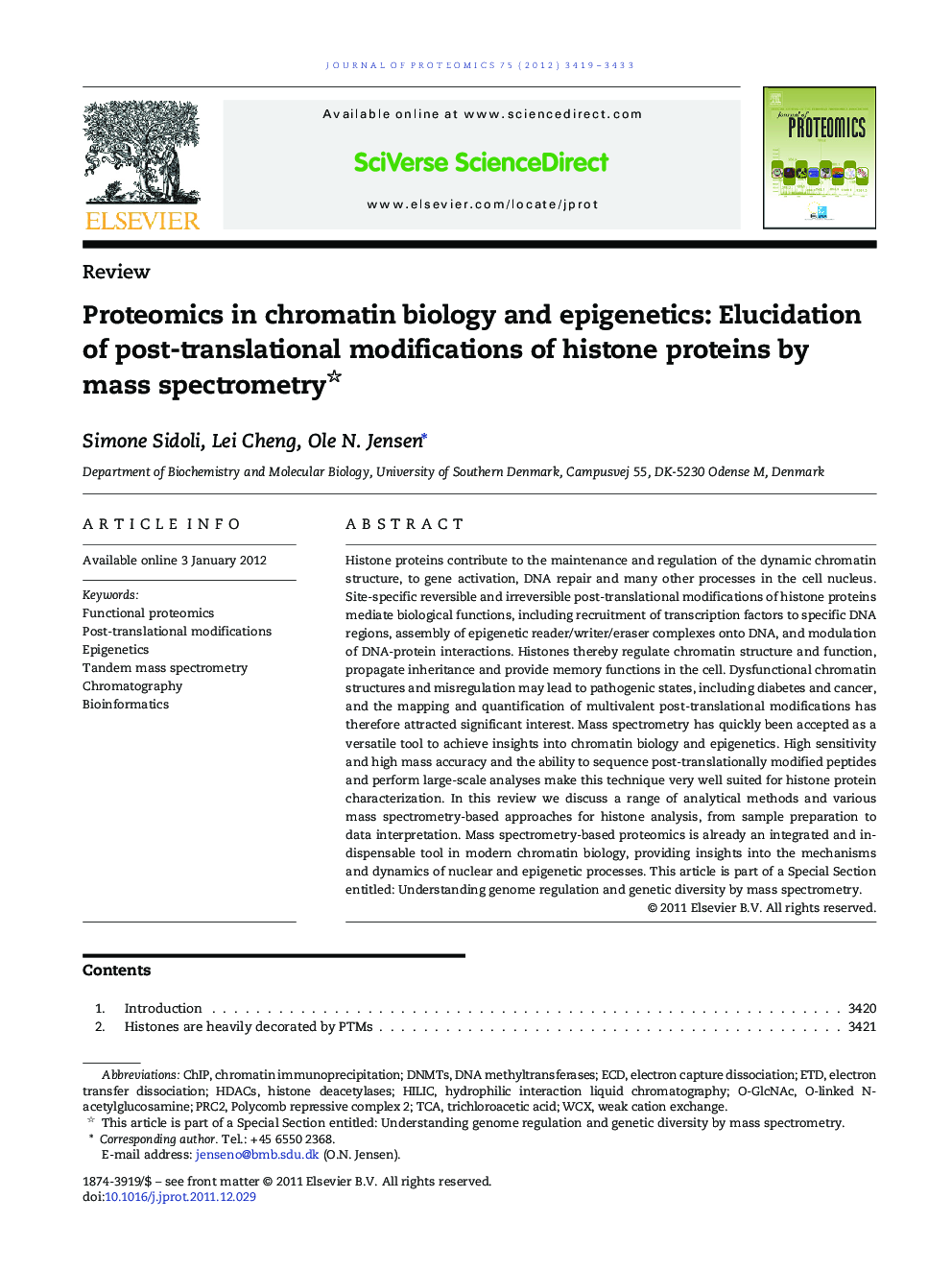| Article ID | Journal | Published Year | Pages | File Type |
|---|---|---|---|---|
| 1225613 | Journal of Proteomics | 2012 | 15 Pages |
Histone proteins contribute to the maintenance and regulation of the dynamic chromatin structure, to gene activation, DNA repair and many other processes in the cell nucleus. Site-specific reversible and irreversible post-translational modifications of histone proteins mediate biological functions, including recruitment of transcription factors to specific DNA regions, assembly of epigenetic reader/writer/eraser complexes onto DNA, and modulation of DNA-protein interactions. Histones thereby regulate chromatin structure and function, propagate inheritance and provide memory functions in the cell. Dysfunctional chromatin structures and misregulation may lead to pathogenic states, including diabetes and cancer, and the mapping and quantification of multivalent post-translational modifications has therefore attracted significant interest. Mass spectrometry has quickly been accepted as a versatile tool to achieve insights into chromatin biology and epigenetics. High sensitivity and high mass accuracy and the ability to sequence post-translationally modified peptides and perform large-scale analyses make this technique very well suited for histone protein characterization. In this review we discuss a range of analytical methods and various mass spectrometry-based approaches for histone analysis, from sample preparation to data interpretation. Mass spectrometry-based proteomics is already an integrated and indispensable tool in modern chromatin biology, providing insights into the mechanisms and dynamics of nuclear and epigenetic processes. This article is part of a Special Section entitled: Understanding genome regulation and genetic diversity by mass spectrometry.
Graphical abstractFigure optionsDownload full-size imageDownload high-quality image (185 K)Download as PowerPoint slideHighlights► Histone proteins contribute to the maintenance of a dynamic chromatin structure. ► Post-translational modifications of histone proteins mediate biological functions. ► Mass spectrometry (MS) enables mapping/quantification of PTMs. ► MS-based proteomics is an indispensable tool in modern chromatin biology.
